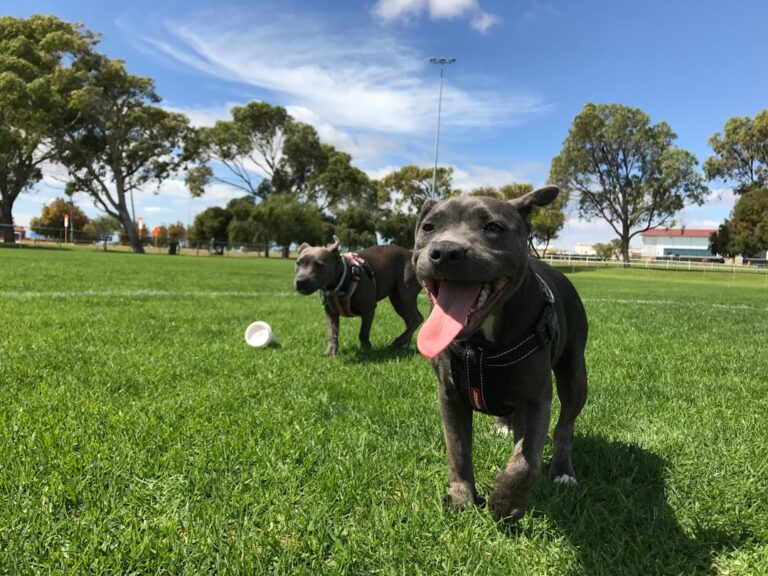Regular veterinary care is a cornerstone of responsible pet ownership, serving as a proactive measure to ensure the health and well-being of pets throughout their lives. Just as humans benefit from routine check-ups, pets require consistent veterinary attention to monitor their health, prevent diseases, and address any emerging issues before they escalate. Regular visits to the veterinarian can lead to early detection of conditions such as diabetes, heart disease, or cancer, which can significantly improve the prognosis and treatment options available.
For instance, a simple blood test during a routine check-up can reveal underlying health problems that may not yet be apparent through observable symptoms. Moreover, regular veterinary care is essential for maintaining vaccinations and parasite control. Vaccinations protect pets from various infectious diseases that can be life-threatening, such as rabies, distemper, and parvovirus.
Additionally, veterinarians provide guidance on flea, tick, and heartworm prevention, which are critical for the overall health of pets. By adhering to a regular veterinary schedule, pet owners can ensure that their furry companions receive the necessary preventive care that not only enhances their quality of life but also extends their lifespan.
Key Takeaways
- Regular veterinary care is essential for the overall health and well-being of pets, helping to prevent and detect potential health issues early on.
- When looking for a local veterinarian, it’s important to consider qualities such as experience, compassion, communication skills, and a clean and well-equipped facility.
- Common services offered by local veterinarians include wellness exams, vaccinations, dental care, parasite prevention, and diagnostic testing.
- To prepare for a visit to the veterinarian, pet owners should gather relevant medical history, bring a list of questions or concerns, and ensure their pet is properly restrained and comfortable for the visit.
- Local veterinarians play a crucial role in preventative care by providing guidance on nutrition, exercise, and parasite control, as well as offering preventive treatments such as vaccinations and regular check-ups.
Qualities to Look for in a Local Veterinarian
When searching for a local veterinarian, several key qualities should be considered to ensure that your pet receives the best possible care. First and foremost, a veterinarian should possess a strong educational background and relevant experience. This includes not only a degree from an accredited veterinary school but also ongoing education to stay current with advancements in veterinary medicine.
A veterinarian who participates in continuing education demonstrates a commitment to providing the highest standard of care and is more likely to be knowledgeable about the latest treatments and technologies. In addition to qualifications, the demeanor and communication style of the veterinarian are crucial. A good veterinarian should be compassionate and patient, taking the time to listen to pet owners’ concerns and answering questions thoroughly.
This open line of communication fosters trust and ensures that pet owners feel comfortable discussing their pets’ health issues. Furthermore, a veterinarian who is willing to collaborate with pet owners in decision-making regarding treatment options can lead to better outcomes for pets. The ability to explain complex medical terms in layman’s language is also an invaluable trait, as it helps pet owners understand their pets’ conditions and the recommended treatments.
Common Services Offered by Local Veterinarians

Local veterinarians provide a wide array of services designed to cater to the diverse needs of pets. Routine wellness exams are among the most common services offered, allowing veterinarians to assess a pet’s overall health through physical examinations, vaccinations, and diagnostic tests. These check-ups are vital for monitoring growth in puppies and kittens and for adjusting care as pets age.
Additionally, veterinarians often provide dental care services, which are essential for preventing periodontal disease—a common issue in pets that can lead to more severe health problems if left untreated. Beyond routine care, local veterinarians also offer surgical services ranging from spaying and neutering to more complex procedures such as tumor removals or orthopedic surgeries. Anesthesia monitoring and post-operative care are critical components of these services, ensuring that pets recover safely and comfortably.
Furthermore, many veterinarians provide emergency care during regular hours or have partnerships with emergency clinics for after-hours situations. This accessibility is crucial for pet owners who may face unexpected health crises with their animals.
How to Prepare for a Visit to the Veterinarian
| Preparation Steps | Details |
|---|---|
| Make an Appointment | Call the veterinarian’s office or use their online booking system to schedule a visit. |
| Gather Medical Records | Collect any previous medical records, vaccination history, and relevant information about your pet’s health. |
| Prepare Questions | Write down any concerns or questions you have about your pet’s health to discuss with the veterinarian. |
| Update Contact Information | Ensure that the veterinarian has your current contact information in case they need to reach you. |
| Bring Your Pet’s ID | Bring your pet’s identification, such as a collar with tags or a microchip, for safety and identification purposes. |
| Transportation | Plan how you will transport your pet to the veterinarian’s office, whether it’s by car, public transportation, or other means. |
Preparing for a visit to the veterinarian can help ensure that the appointment runs smoothly and that all necessary information is communicated effectively. One of the first steps is to gather relevant medical history for your pet, including vaccination records, previous illnesses or surgeries, and any medications currently being administered. This information provides the veterinarian with a comprehensive understanding of your pet’s health background and aids in making informed decisions regarding treatment.
Additionally, it is beneficial to prepare a list of questions or concerns you may have about your pet’s health or behavior. Whether it’s about dietary needs, behavioral issues, or specific symptoms you’ve noticed, having these questions written down can help you remember them during the appointment. It’s also advisable to bring along any recent observations about your pet’s behavior or changes in appetite or energy levels, as these details can provide valuable insights into their health status.
Lastly, ensuring that your pet is comfortable during travel—whether by using a secure carrier or familiar bedding—can help reduce stress for both you and your pet.
The Role of Local Veterinarians in Preventative Care
Local veterinarians play an integral role in preventative care strategies that are essential for maintaining the long-term health of pets. Preventative care encompasses a range of services designed to avert diseases before they occur or catch them in their early stages when they are most treatable. Regular wellness exams are a fundamental aspect of this approach; during these visits, veterinarians assess pets for any signs of illness and recommend appropriate vaccinations based on age, lifestyle, and risk factors.
In addition to vaccinations, local veterinarians often provide nutritional counseling tailored to individual pets’ needs. Proper nutrition is vital for preventing obesity—a growing concern among pets—which can lead to various health issues such as diabetes and joint problems. Veterinarians can recommend specific diets or supplements that support optimal health based on factors like breed, age, and activity level.
Furthermore, local veterinarians educate pet owners about the importance of dental hygiene and may offer dental cleanings as part of their services. By emphasizing preventative care measures, veterinarians help pet owners take proactive steps toward ensuring their pets lead healthy lives.
Emergency Care and After-Hours Services Provided by Local Veterinarians

Emergency care is an essential service provided by many local veterinarians, ensuring that pets receive immediate attention when faced with urgent health issues. Common emergencies include trauma from accidents, sudden illness such as vomiting or difficulty breathing, or severe allergic reactions. Many veterinary clinics are equipped with facilities to handle these emergencies during regular hours; however, some may also offer after-hours services or have partnerships with emergency veterinary hospitals for situations that arise outside normal business hours.
When selecting a local veterinarian, it is important to inquire about their emergency protocols and after-hours availability. Some clinics may have an on-call veterinarian who can provide guidance over the phone or direct you to an appropriate emergency facility if necessary. Understanding these options ahead of time can alleviate stress during an emergency situation when quick decisions need to be made regarding your pet’s care.
Additionally, being aware of what constitutes an emergency can help pet owners act swiftly when their pets require urgent medical attention.
Establishing a Relationship with Your Local Veterinarian
Building a strong relationship with your local veterinarian is beneficial not only for your pet’s health but also for your peace of mind as a pet owner. A trusting relationship fosters open communication between you and your veterinarian, allowing for more personalized care tailored to your pet’s unique needs. Regular visits help establish familiarity; over time, your veterinarian will come to know your pet’s history, personality traits, and specific health concerns.
Moreover, a good relationship with your veterinarian can enhance your understanding of your pet’s health needs and treatment options. When you feel comfortable discussing concerns or asking questions, it leads to better-informed decisions regarding your pet’s care. This collaborative approach ensures that both you and your veterinarian are aligned in your goals for your pet’s health and well-being.
Additionally, many veterinarians appreciate when clients take an active interest in their pets’ health; this engagement can lead to more effective treatment plans and improved outcomes.
The Benefits of Choosing a Local Veterinarian for Your Pet’s Care
Choosing a local veterinarian offers numerous advantages that contribute significantly to the overall well-being of your pet. One primary benefit is accessibility; having a veterinary clinic nearby means that routine visits are more convenient and less stressful for both you and your pet. This proximity also becomes crucial during emergencies when time is of the essence; being able to reach your veterinarian quickly can make all the difference in critical situations.
Furthermore, local veterinarians often have a vested interest in their community and may offer personalized services that larger corporate veterinary practices cannot match. They tend to build long-term relationships with clients and their pets, leading to more tailored care based on individual histories and preferences. Additionally, local veterinarians frequently engage in community outreach programs such as vaccination clinics or educational seminars on pet care topics, further enhancing their connection with pet owners in the area.
By choosing a local veterinarian, you not only support small businesses but also ensure that your pet receives compassionate care from professionals who genuinely care about their well-being.












